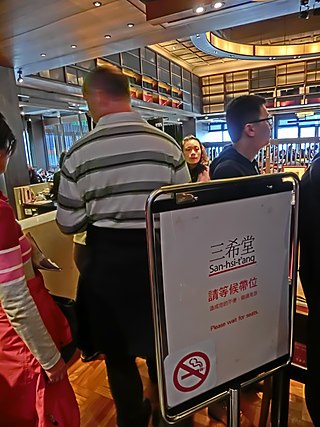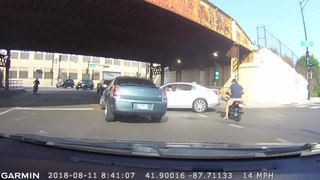
Treason is the crime of attacking a state authority to which one owes allegiance. This typically includes acts such as participating in a war against one's native country, attempting to overthrow its government, spying on its military, its diplomats, or its secret services for a hostile and foreign power, or attempting to kill its head of state. A person who commits treason is known in law as a traitor.
A court-martial or court martial is a military court or a trial conducted in such a court. A court-martial is empowered to determine the guilt of members of the armed forces subject to military law, and, if the defendant is found guilty, to decide upon punishment. In addition, courts-martial may be used to try prisoners of war for war crimes. The Geneva Conventions require that POWs who are on trial for war crimes be subject to the same procedures as would be the holding military's own forces. Finally, courts-martial can be convened for other purposes, such as dealing with violations of martial law, and can involve civilian defendants.
Life imprisonment is any sentence of imprisonment for a crime under which convicted criminals are to remain in prison for the rest of their natural lives. Crimes that warrant life imprisonment are extremely serious and usually violent. Examples of these crimes are murder, torture, terrorism, child abuse resulting in death, rape, espionage, treason, illegal drug trade, human trafficking, severe fraud and financial crimes, aggravated property damage, arson, hate crime, kidnapping, burglary, robbery, piracy, aircraft hijacking, and genocide.

The Offences against the Person Act 1861 is an Act of the Parliament of the United Kingdom of Great Britain and Ireland. It consolidated provisions related to offences against the person from a number of earlier statutes into a single Act. For the most part these provisions were, according to the draftsman of the Act, incorporated with little or no variation in their phraseology. It is one of a group of Acts sometimes referred to as the Criminal Law Consolidation Acts 1861. It was passed with the object of simplifying the law. It is essentially a revised version of an earlier consolidation act, the Offences Against the Person Act 1828, incorporating subsequent statutes.
Murder is an offence under the common law legal system of England and Wales. It is considered the most serious form of homicide, in which one person kills another with the intention to unlawfully cause either death or serious injury. The element of intentionality was originally termed malice aforethought, although it required neither malice nor premeditation. Baker, chapter 14 states that many killings done with a high degree of subjective recklessness were treated as murder from the 12th century right through until the 1974 decision in DPP v Hyam.

The Controlled Substances Penalties Amendments Act of 1984, 98 Stat. 2068, generally enhanced the penalties for violations of the Comprehensive Drug Abuse Prevention and Control Act of 1970. The 1984 legislation removed an ambiguity in the then-existing law by providing that a State drug felony conviction would trigger the provisions enhancing penalties for recidivists; it went further by providing that a Foreign drug felony conviction would have the same effect. Finally, the 1984 legislation doubled the penalties for distribution of controlled substances where the offense is committed on or within 1,000 feet of school property.

Detention is the process whereby a state or private citizen lawfully holds a person by removing their freedom or liberty at that time. This can be due to (pending) criminal charges preferred against the individual pursuant to a prosecution or to protect a person or property. Being detained does not always result in being taken to a particular area, either for interrogation or as punishment for a crime. An individual may be detained due a psychiatric disorder, potentially to treat this disorder involuntarily. They may also be detained for to prevent the spread of infectious diseases such as tuberculosis.

Capital punishment is a legal penalty in Taiwan. The long list of capital offences, for which the death penalty can be imposed, includes murder, treason, drug trafficking, piracy, terrorism, and especially serious cases of robbery, rape, and kidnapping, as well as for military offences, such as desertion during war time. In practice, however, all executions in Taiwan since the early 2000s have been for murder.
Capital punishment is a long unused form of punishment in Brazil. The last recorded instance of a death penalty convict being executed in the country was in 1876. Although virtually abolished, it is still legal during wartime, according to the Article 5, XLVII, "a", of the Federal Constitution. Brazil is the most populous country in the world that does not retain the death penalty in practice. It is also one of seven countries to have abolished capital punishment for ordinary crimes only.
The law of the Republic of China as applied in Taiwan, Penghu, Kinmen, and Matsu is based on civil law with its origins in the modern Japanese and German legal systems. The main body of laws are codified into the Six Codes:
The National Information Infrastructure Protection Act was Title II of the Economic Espionage Act of 1996, as an amendment to the Computer Fraud and Abuse Act.
Article One of the Georgia State Constitution describes the Georgia Bill of Rights, a set of forty paragraphs which enumerate the Rights of Persons, the Origin and Structure of Government and other General Provisions. The Georgia Bill of Rights was written by Thomas R.R. Cobb under the title Declaration of Fundamental Principals, as part of the Georgia Constitution of 1861 when the State of Georgia seceded from the United States of America and joined the Confederate States of America.
During the Maoist era, particularly during the Anti-Rightist Movement and the Cultural Revolution, the judicial system of China was often used for political persecution of rivals, and penalties such as jail terms or capital punishment were largely imposed on the authority's political enemies, or anyone who attempted to challenge it. During those times, vague accusations such as "counter-revolutionary", capitalist roader (走资本主义路线), "running dog of the imperialist " (帝国主义走狗) could have had the accused imprisoned, or shot by firing squad. These labels fell out of use following the end of the Cultural Revolution in 1976.

Smoking in Taiwan is regulated by the Tobacco Hazards Prevention Act (Taiwan). Tobacco advertising is banned, and smoking is banned in all indoor public places. Taiwan was the second Asian country to institute an indoor smoking ban, after Bhutan. The Government of Taiwan is planning to extend the smoking ban to cars, motorbikes, and pedestrians.
Inciting subversion of state power is a crime under the law of the People's Republic of China. It is article 105, paragraph 2 of the 1997 revision of the People's Republic of China's Penal Code.
Life imprisonment is one of the five principal punishments stipulated in Article 33 of the Criminal Law of the People's Republic of China. In the Criminal Law, there are 87 penalties for life imprisonment.

In traffic laws, a hit and run or a hit-and-run is the criminal act of causing a traffic collision and not stopping afterwards. It is considered a supplemental crime in most jurisdictions.
Capital punishment is a legal penalty in Indonesia. Although the death penalty is normally enforced only in grave cases of premeditated murder, corruption in extreme cases can lead to the death penalty and the death penalty is also regularly applied to certain drug traffickers. Executions are carried out by firing squad.

Cannabis in Taiwan is illegal. It is listed as a category 2 narcotic by Narcotics Hazard Prevention Act in Taiwan. Offenders of manufacturing, transporting, or selling category 2 narcotics are subject to life imprisonment or a minimum 10-year fixed-term imprisonment, and may also be subject to a fine of no more than NT$15 million.
Supplementary service is a category of military service in South Korea. Article 5 Paragraph 1, Subparagraph 3 of the ROK Military service act classifies supplementary service as "Persons found to be capable of serving on active duty as a result of a draft physical examination, but not determined as those subject to enlistment in the military as active duty soldiers due to the supply and demand conditions of the armed forces".






